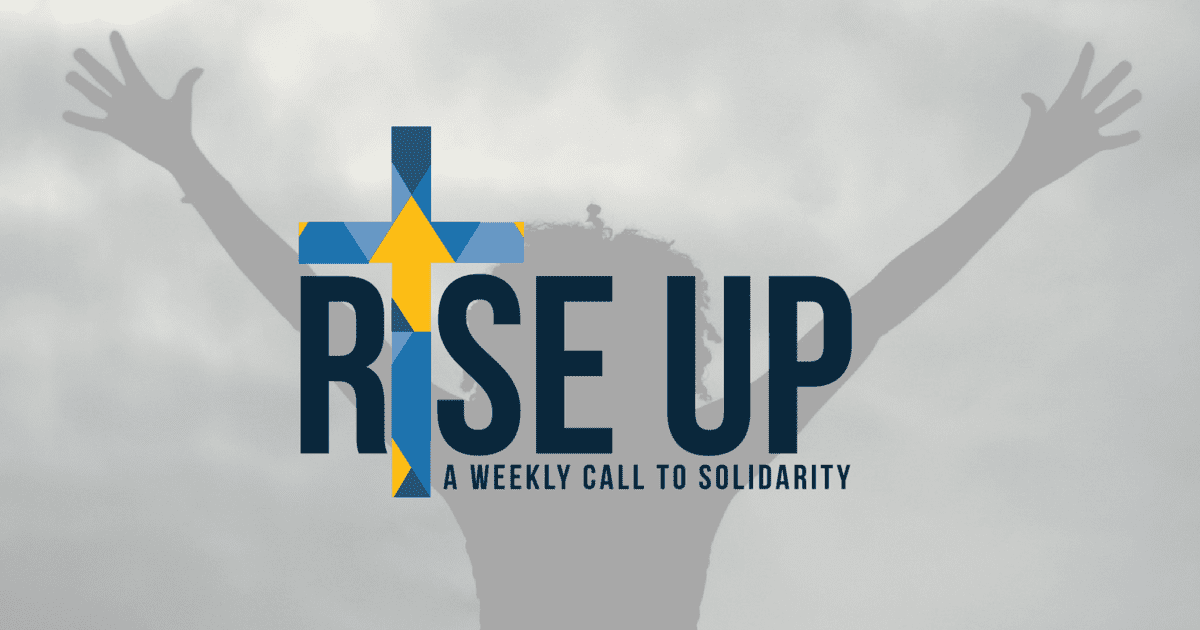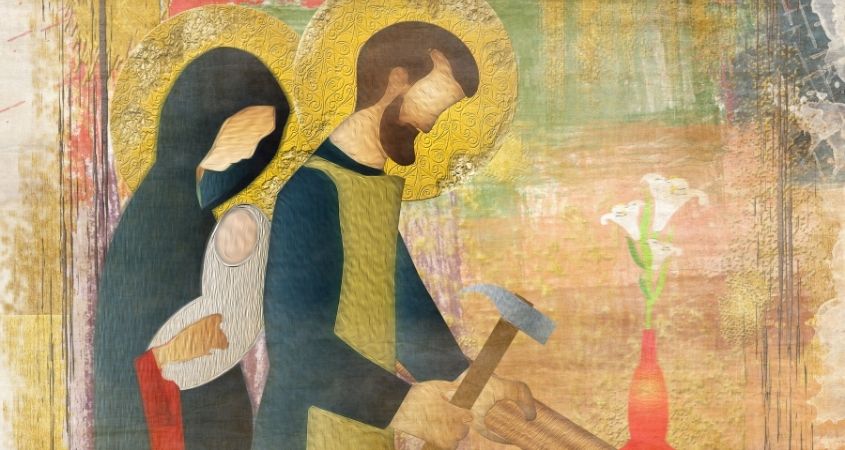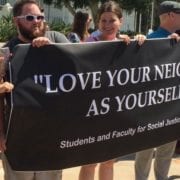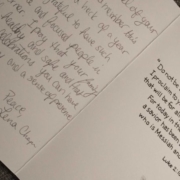Justice is Born in “The Gap”
BY CHLOE BECKER | January 4, 2020
Sunday’s Readings

Incarnation is one of my favorite areas of theology to explore, but I am the first to admit that it’s easy to fall into similar patterns of analysis一the profoundness of God’s incarnation in someone of so little power; we are called to be and recognize in others the Christ Incarnate; God is incarnate in our world, not just in the person Jesus, but woven into all aspects of creation. I could endlessly read on those topics, but for the sake of those who might not be as enthralled, I am going to offer a different perspective.

Matthew’s Gospel this week reveals how much anticipation surrounded the birth of Jesus一rumors spread, King Herod felt threatened, and magi were sent out to find him. Yet after the magi leave, the Gospels don’t provide us with much more information. We can infer that the magi had a long trip home, and that Mary and Joseph were left in an uncomfortable manger to care for Jesus. The Gospels skip much of Jesus’s life, hitting the most important moments, and reasonably so, as it’s not a detailed memoir. The result, though, is that it’s easy to ignore what happened in the gaps: the mundane, daily struggles the Holy Family likely experienced. They couldn’t fast forward to Jesus in his thirties; in fact, they didn’t even know who he would grow up to be. They couldn’t have possibly known that he would radically change the world with his ministry: centering the ostracized, condemning the rich, and preaching of the Kingdom of Love and Justice that those who follow him are called to construct.
When we feel inspired to act for justice, the energy often mirrors that of the magi in this Gospel; it is a combination of exciting and daunting, and we are motivated to take immediate action. However, we should remember that the unwritten “next passage” for the Holy Family was one of quiet, sometimes lonely, difficult, humble work. We must emulate the perseverance of Mary and Joseph一who raised their firstborn on little income, and were judged for Jesus’s perceived illegitimacy一as we carry on: planning, researching, organizing, and challenging ourselves to sustain the building of God’s Kingdom in our own spheres of influence. We would all like to skip from the birth of a movement to its justice in entirety一to a world rid of racism, homophobia, transphobia, sexism, ableism, xenophobia, and all that oppresses. “The gap” cannot be glorified; it demands we abandon our egos, and endure long term diligence, likely without recognition. But it is in “the gap” where Mary and Joseph truly gave birth to Jesus in full, and thus, where our justice work must live in order for us to birth Christ too.
Chloe Becker is an artist committed to creating Catholic art for racial justice. She graduated from Magnificat High School in 2020, is currently taking a gap year, and will be attending Harvard University in the fall of 2021. She is spending her time this year in Cleveland, Ohio as an intern at ISN and doing lots of painting. In 2019, she painted a mural at her high school to strengthen the Catholic Church’s voice against racism, which gained attention over social media and was published in an article in America Magazine. She spoke at the 2019 Ignatian Family Teach-in for Justice, and has had her writing published by ISN.









Simplicity, humility, perseverance are words that help describe Mary’s willingness to do all God wanted her to do. She understood the call of the Father and lived it daily in times of stress, boredom, daily chores, and all things that needed her attention. Because she lived in a very small section of the world, she might not have had to deal with our ever present ‘isms, but she showed deep and consistent care for Joseph and Jesus. That simplicity gives us the guidance of the Holy Spirit to treat everyone in our path with dignity and respect. This is our very mantra for today. A deep abiding social justice that applies to all we know and extend our love to. May we transform our world today with Mary’s love for all we do. We ask you this through her Son, Jesus Christ, our Lord. Amen
Perseverance was their forte. Jesus, Mary and Joe – Pray for us.